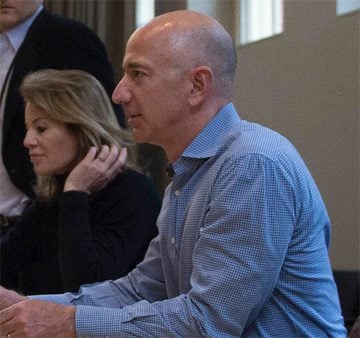In my last blog post, tried to look beyond the current scandal of sexual harassment, not to minimize the pain of victims or the wrongness of what the harassers have done, but rather to consider deeper and wider questions, such as:
How can we create and sustain work cultures in which all people are respected by their superiors and colleagues?
How can we nurture a climate in which deep respect for others is the norm and harassment of any kind is rare?
How can we raise young men to treat all others, especially women, respectfully, whether at college parties, families, or in their place of work?
Beyond the pressing issues associated with sexual harassment, how can we foster communities in which all people are accorded true dignity?
As I explained previously, I am professionally and personally committed to finding answers to these questions, especially the last one. I believe that if we foster communities in which all people are accorded true dignity, then sexual harassment will be extremely rare if it happens at all. And if it does happen, communities of respect will quickly and rightly support victims and hold perpetrators accountable.
So, then, how can we foster communities in which all people are accorded true dignity? I doubt there are easy answers to this question. Sociologists, psychologists, teachers, community organizers, ethicists, theologians, clergy, CEOs, parents, and many others deserve to have input. I’m going to share a few of my suggestions, but these are just a start.
I want to talk about how our ideas can guide our behavior, for good or for ill. What somebody thinks about other human beings will surely affect his or her behavior. But, before I get to ideas, I want to say something about actions, about practices. Years ago, I would have focused mainly on ideas. Now, I’m more aware of the power of practices to shape our thinking, feeling, and acting.

For example, when my son was in first grade, I helped in his classroom (one of the perks of being a pastor with Mondays off). I noticed right away that one of Nathan’s fellow students treated the teacher with distressing disrespect. He often chose to ignore her or to disobey her instructions. He sometimes spoke to her in a way that almost sounded belittling. The teacher’s efforts at getting this boy to be more respectful had little effect. I, on the other hand, seemed to get a better response from him, a fact that puzzled me at first. But then I had an occasion to spend some time with this student’s family. I saw the way his father treated his mother, or mistreated her, to be more accurate. The father showed little respect for his own wife in the way he spoke to her and about her. His behavior was a mature version of how his son treated his teacher. Now, I don’t know if this father ever told his son that women were less worthy of respect than men. But he didn’t have to in order to convey the message. The father’s actions spoke louder than words, and were forming his son in his own image.
What we do shapes our own beliefs and well as our hearts. It also influences others, especially those for whom we are role models. Now, I’m not saying that every man who sexually harasses women learned to do so by imitating his father. But I do believe actions matter. Examples matter. Mentors matter. Parents matter. What we observed and experienced while growing up will make a difference in how we live later on. So, as obvious as it sounds, part of what is needed begins at home. If fathers want their children to treat others with respect, then fathers should model this behavior in their relationships, especially those at home.
Moreover, what we observe and experience in our workplaces will make a difference in our behavior as well. If, for example, young men in a company observe their managers and C-level leaders treating all people, including all women, with respect, then they will be encouraged to do the same. If they observe or hear about men higher up in the organization objectifying women and treating them inappropriately, without accountability, then the young men will be encouraged to do the same, no matter the official policies of the organization. The behavior of leaders influences the behavior of others.
Thus, if we seek to foster communities in which all people are accorded true dignity, then it’s essential that we make every effort to respect the dignity of others through our actions and words, especially when we are in positions of influence. The way we treat others will be reflected in the culture we help to create and curate.
Of course, what I’ve just said works only if we believe that all people should be accorded dignity. If this belief is lacking, then we’ll lack the motivation to treat others with respect. We’ll easily give way to the temptation to regard them as tools to be exploited for productivity or pleasure. In my next blog post, I’ll explain why I believe that all human beings have dignity, and therefore deserve to be treated with the utmost respect, no matter their position, gender, race, class, intelligence, or any other condition.










